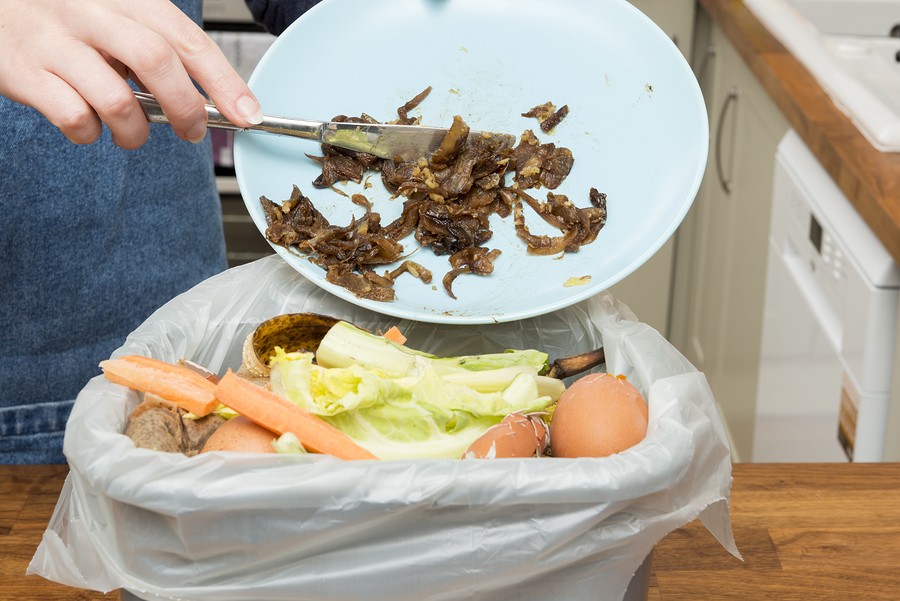
If you spend a lot of time at home preparing your own food (perhaps you recently chose to renovate your kitchen), then you’re going to be creating a proportionate amount of waste every time you cook. This waste includes offshoots from cut vegetables, ingredients that go out of date, uneaten food, and general debris that collects as you go about the business of preparing your meals.
While you’re saving money by not relying on takeaway or microwaveable meals for dinner, you could potentially be wasting a significant amount in the form of food waste. Not only are you losing money when you bin unused scraps or out of date food, but you end up adding more to the total amount of garbage that ends up in landfills.
If you want to reduce the amount of food waste you generate to save money and make your kitchen more sustainable, consider the following points.
Be less picky with your fruit & veg
A decent amount of produce is thrown away when it doesn’t meet the standards people expect and is otherwise referred to as ‘imperfect’ fruit & veg. You shouldn’t throw away or avoid buying a fruit or vegetable just because it’s oddly sized or misshapen. Will those things really matter when you dice it up?
When you’re dicing up produce in your kitchen, collect the offshoots and use as much of it as you can. There are different food preparation techniques you can learn that will help you portion ingredients more evenly, allowing you to get the most useable material from them as possible.
Shop smart
The supermarket and the decisions you make there has a significant impact on the amount of food waste you generate back in your kitchen. There are many examples of purchasing behaviours resulting in the creation of excess food waste. This includes trends like buying more food than necessary (resulting in preparing too much and throwing away what’s uneaten), or buying food near the use-by date then not consuming it in time (causing it to be wasted).
One of the best ways to reduce the amount of food waste you create when shopping is to cut the fat from your shopping list by doing some planning at home. Think about what you really need each week and try to plan for expiration dates so that you use up all of something before you are forced to throw it away.
Instead of doing one or two large grocery hauls each week, try buying less produce on a more frequent basis. This will mean fresher cooking ingredients and less temptation to prepare more food than you need to for the sake of using up an ingredient before it goes off.
Use a meal-kit delivery service
If you want to eliminate the hassle of grocery shopping without giving up on the benefits of cooking your own meals, you can always try using a meal-kit service. These services deliver simple instructions for healthy recipes to your home, along with the exact amount of high-quality ingredients needed to prepare them. Subscribing to a service like this can significantly minimise the amount of waste that’s created at dinnertime, and allows you to keep cooking fun by swapping out different weekly recipes and trying new cuisines.
Embrace leftovers
Instead of viewing leftovers as something you eat begrudgingly to save money and minimise waste, embrace them as part of your regular diet and prepare foods that you won’t mind reheating. One of the best home appliances you can use to reduce food waste is a slow cooker that allows you to prepare broths and store them in a tub in the fridge, ready to heat up in the microwave or take to work for lunch.
While you don’t need to totally abandon more elaborate meals, leaning on something simple, nutritious and plentiful will help you save money and minimise food waste in your kitchen.
Composting
Try as we might – it’s impossible to eliminate all food waste in the kitchen. The good news is that just because you don’t eat this food, doesn’t mean it needs to be thrown in the trash.
Composting is an excellent way to re-use food scraps so that you minimise waste and stretch your dollar further. Compost acts as a nutrient-rich fertiliser for your garden that you don’t need to pay for (you could also give the compost to your neighbours to use in their yards).
You can refer to a composting guide to get information on how to best prepare and use your compost bin.
Conclusion
As you can see, there’s no shortage of things you can do to significantly reduce the amount of food waste created in your kitchen, making your home more sustainable and saving more of your hard-earned cash.



